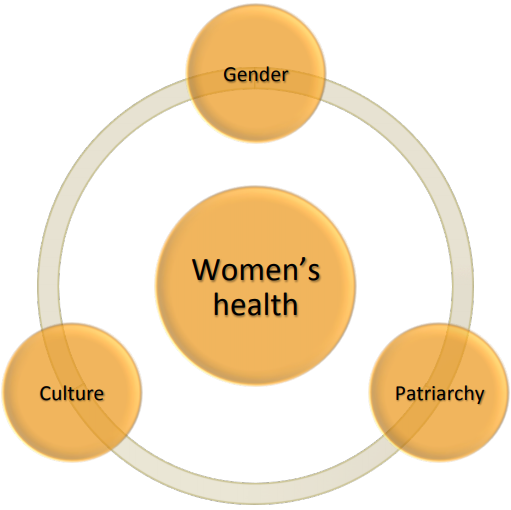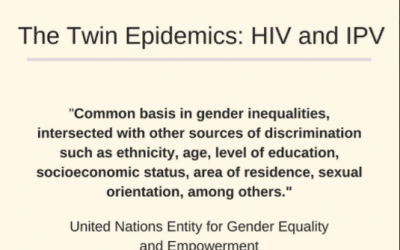HIV and Intimate Partner Violence
“Women who report experiencing trauma often do not have the power or self-confidence to protect themselves from acquiring HIV. Once infected, women who experience ongoing abuse are often not in positions of power to effectively care for themselves or to insist that their partners protect themselves. Effectively addressing trauma has the potential to both improve the health of HIV-positive women and that of the community.”
Dr. Edward Machtinger, Director of The Women’s HIV Program (WHP) at the University of San Francisco
“Violence against women doesn’t go away with an HIV diagnosis. HIV diagnosis may in fact exacerbate violence against women.”
Naina Khanna, Executive Director of Positive Women’s Network
Key Statistics on HIV and IPV in the U.S.
- The rate of IPV among HIV-positive women (55%) is double the national rate. Rates of childhood sexual abuse (39%) and physical abuse (42%) were more than double the national rate.
CDC: Intersection of HIV and IPV in Women (2014) - Among all women with HIV diagnosed in 2015, 61% were African American, 19% were white, 15% were Hispanic/Latina, and 2% were Asian.
CDC: HIV Surveillance Report (2015) - 86% of API women living with HIV got it through unprotected sex with a male partner.
Zaidi et al.: Epidemiology of HIV/AIDs among Asians and Pacific Islanders in the US (2005) - API women were found to have the lowest proportion (17%) of HIV testing compared to women of other races/ethnicities. Of API women who believe they are at risk, only 5% have gone for testing.
Hahm et. al: HIV testing and API women (2009) - 22% of Asians living with HIV do not know they have it.
CDC: HIV among Asians in the U.S. (2015)
Resources on HIV and Intimate Partner Violence
HIV and Intimate Partner Violence Among Asian American and Pacific Islander Women, 2016
This factsheet raises awareness about the nexus of HIV and IPV, analyzes factors contributing to elevated risk for Asian American and Pacific Islander women and girls, and contextualizes cultural barriers. It offers recommendations to increase coordination between HIV and domestic violence service agencies for Asians and Pacific Islanders, and the need for trauma-informed, gender-sensitive interventions to mitigate the sociocultural and gendered harms abused women and girls in our communities face.
HIV & Intimate Partner Violence Among Asian American and Pacific Islander Women: Overlooked and on the Margins, 2015
This webinar surveys the landscape of what puts women and girls at risk – including biological, socioeconomic and cultural considerations; and offers recommendations to connect AAPI women to safety, testing, treatment and care.
Other Resources
Asian & Pacific Islander Coalition on HIV/AIDs, Inc (APICHA): South Asian Immigrant Women’s HIV/AIDS Related Issues: An Exploratory Study of New York City (2005)
Banyan Tree Project: a national social marketing campaign to stop HIV/AIDS-related stigma in API communities through education and storytelling
Centers for Disease Control: webpages on HIV and Asian Women and Intersection of IPV and HIV women
Futures Without Violence webinar: Addressing the Effects of Violence and Abuse to Improve the Health Outcomes of Women Living with HIV (2015)
National Network to End Domestic Violence: Domestic Violence and HIV/AIDS Toolkit includes factsheets, handouts, service provider resources, and service provider templates
Positive Women’s Network: a national membership body of women living with HIV and allies that exists to strengthen the strategic power of all women living with HIV in the United States
- Count Us In the Right to Live a Life Free from Violence (2013): factsheet on violence against women living with HIV
VAWnet Special Collection: The Intersections Between Intimate Partner Violence and HIV/AIDS (2015)
White House: Interagency Federal Working Group, Office of National AIDS Policy, White House Advisor on Violence Against Women, White House Council on Women and Girls
- Addressing the Intersection of HIV/AIDS, Violence Against Women and Girls, and Gender-Related Health Disparities (2013)
- Update on Efforts to Address the Intersection of HIV/AIDS, Violence Against Women and Girls, and Gender-Related Health Disparities (2014)
Women’s HIV Program at UCSF: Unraveling the Impact of Trauma on People with HIV and Their Care Providers: An Interview With Edward Machtinger (2014)
World Health Organization: Violence Against Women and HIV/AIDS: Critical Intersections: Intimate Partner Violence and HIV/AIDS


